Unsure about how your keywords are performing in search engines, or are you puzzled about the lack of traffic to your website?
Do you want to pinpoint which keywords are truly benefiting your website so you can focus on them?
Well, what if I told you that understanding how to track keyword rankings could provide insights into all these concerns and so much more?
Let me show you how you can do that!
What is Keyword Ranking?
Keyword Ranking refers to the position at which a specific website or web page appears in the search engine results pages (SERPs) for a particular keyword or phrase.
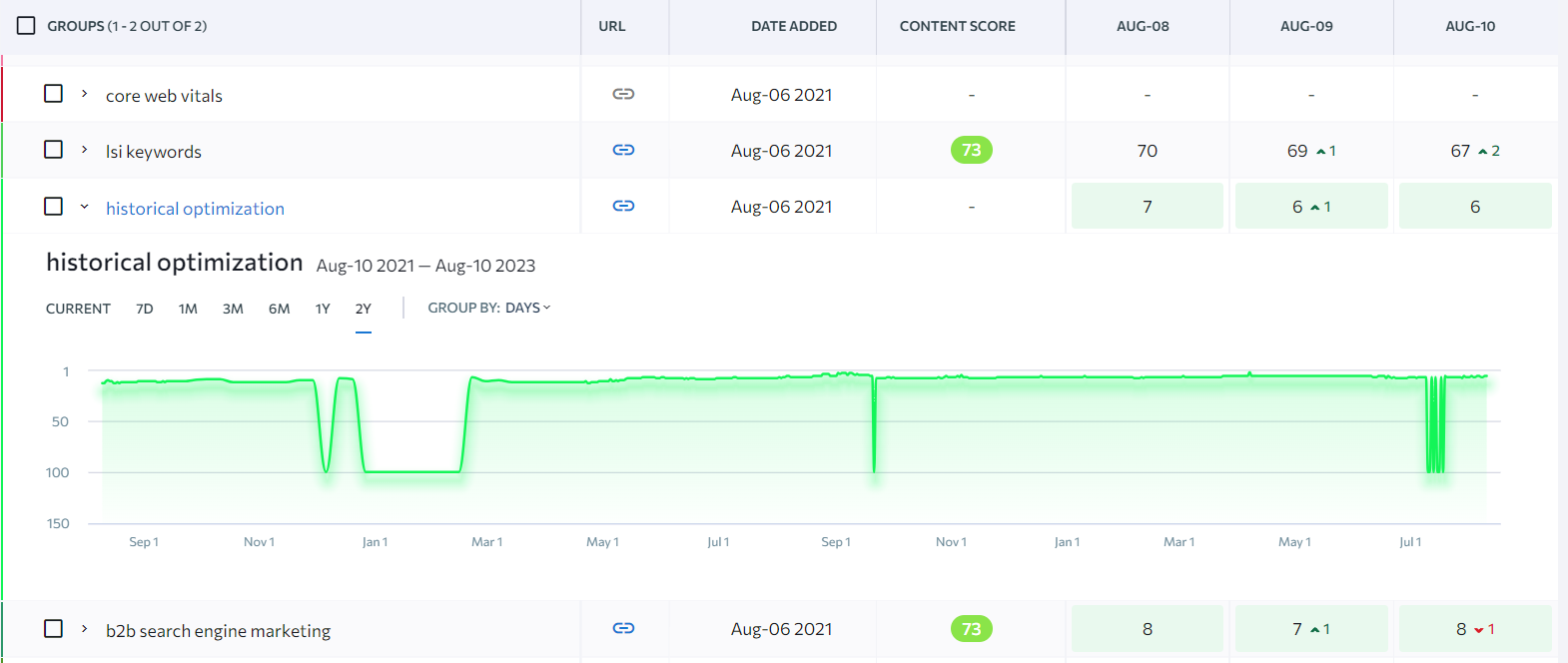
When a user enters a keyword or phrase into a search engine like Google, the engine displays a list of web pages it deems most relevant to that query.
The order in which these pages appear is determined by a combination of search engine ranking factors, including the quality and relevance of the content, the number of quality backlinks pointing to the page, user experience, and many other SEO factors.
A higher keyword ranking means the website or page appears closer to the top of the search results, which typically leads to more visibility and a higher likelihood of attracting clicks from users.
Why is Tracking Keyword Ranking Important?
Tracking your target keywords is essential in order to effectively plan your keyword targeting and overall, SEO Strategy (that applies to B2B SEO strategy, SaaS SEO strategy, etc.). It’s an important part of your keyword research strategy as it will tell you exactly what you should do next.
But let me give you the exact reasons why you should be tracking your target or primary keywords:
Understanding the Overall Website Performance
Tracking keyword rankings provides insights into how well your website is performing in search engine results. By monitoring these rankings, you can evaluate the effectiveness of your SEO efforts and identify areas that require optimization.
Regularly tracking keyword rankings allows for timely adjustments, ensuring that your website remains competitive in SERPs.
For example, you can quickly spot if one of your top-ranking keywords is losing rankings and you can quickly take action to fix that.
Or when you are planning your link building campaign, you can look at your pages ranking in 5-20 ranking positions to give them the boost they need to break into the top 3.
Capitalizing on Your Website’s Strengths
Another reason why you should be regularly tracking your keywords is to understand for what topics your website ranks well.
By monitoring keyword rankings, you can identify topics and keywords where your website excels.
Recognizing these strengths allows you to double down on content and strategies that resonate with your audience and search engines alike resulting in better average ranking position, faster indexing, and ultimately higher organic traffic.
Search engines, like Google, often associate websites with specific topics based on their content.
When your website consistently ranks well for certain topics, it reinforces your authority in that niche, leading to better rankings and increased visibility.
This is especially important for websites with small authority to do well in SEO.
Adjusting Keyword Strategy Based on Difficulty
And the last reason why you should be tracking your keywords is to find the right keyword difficulty that you can rank for.
As we know, not all SEO keywords are created equal. Some are more competitive and harder to rank for, while others might offer easier opportunities for visibility.
Tracking keyword rankings helps you understand the difficulty level of the keywords you’re targeting.
By analyzing this data, you can adjust your keyword research strategy to focus on terms that align with your website’s authority and ranking potential.
Targeting appropriately difficult keywords ensures that your SEO efforts are realistic and achievable, maximizing the return on investment (ROI) for your SEO content and optimization strategies, ultimately getting your results faster.
What Exact Keywords Should You Be Tracking?
Before you can start tracking your keywords, you need to know what exact keywords you should be tracking for your content.
One of the challenges with tracking your keywords is that your page can rank for 10s-1,000s of keywords. (Source)
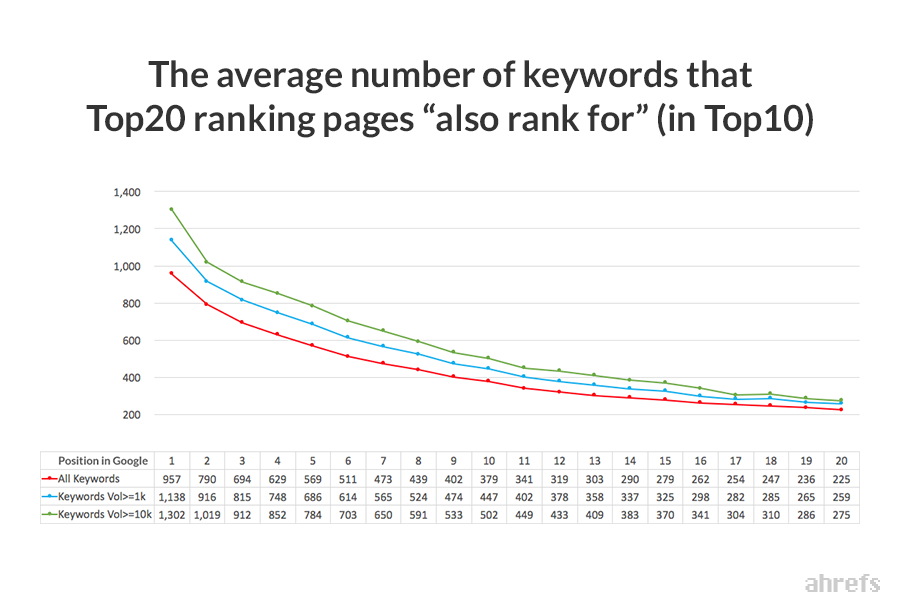
But should you be tracking them all? Or which of the keywords should you be tracking?
Well, luckily the answer to this question is relatively simple.
In most cases, you only want to be tracking your primary keywords/target keywords for every of your web page.
Meaning you want to be only tracking 1 keyword for every SEO-optimized page you publish.
For example, if you’re targeting the primary keyword “keyword analysis”, then you will want to be tracking only this keyword.
Simple right?
Well, on some rare occasions, you might want to also be tracking some LSI keywords or secondary keywords.
For example, the keywords “link building companies” or “link building agencies” are just LSI keywords to the main keyword “link building services”. Because the pages ranking for these keywords are targeting the keywords “link building services”.
Thus, you need to produce SEO content targeting the keyword “link building services” and then include the LSI keywords “link building companies” and “link building agencies” within the content to rank for them as well.
Yet, you still want to track the keywords “link building companies” and “link building agencies”, as they’re valuable and important keywords.
Thus, sometimes, you need to use a bit of common sense when you are deciding if you want to track other non-primary keywords.
However, if you are not sure, it’s better to track only primary keywords.
How Track Keyword Ranking
Knowledge is power, but good knowledge comes from good data.
And when it comes to SEO, understanding where you rank in SERPs is invaluable.
But how exactly do you track keyword ranking?
Well, there are several options for how you can do that:
Manually Checking SERPs
The first way to track your ranking is by manually checking the SERPs.
Yes, it’s as straightforward as it sounds. You can simply type your targeted keywords into a search engine and see where your website lands.
I recommend using the SE Ranking Location Checker, so you can select the location of the search and use browse incognito.
But remember:
- It’s time-consuming.
- Personalized search results can skew your perceptions. It’s hard to get impersonalized results even with incognito.
- It’s not efficient for tracking multiple keywords.
Google Search Console
Another how to track keyword ranking is by using Google Search Console.
Google provides essential information on how your website performs in Google search results by giving you free access to GSC.
It offers important insights about your website performance such as clicks, impressions, avg. ranking, and avg. CTR.
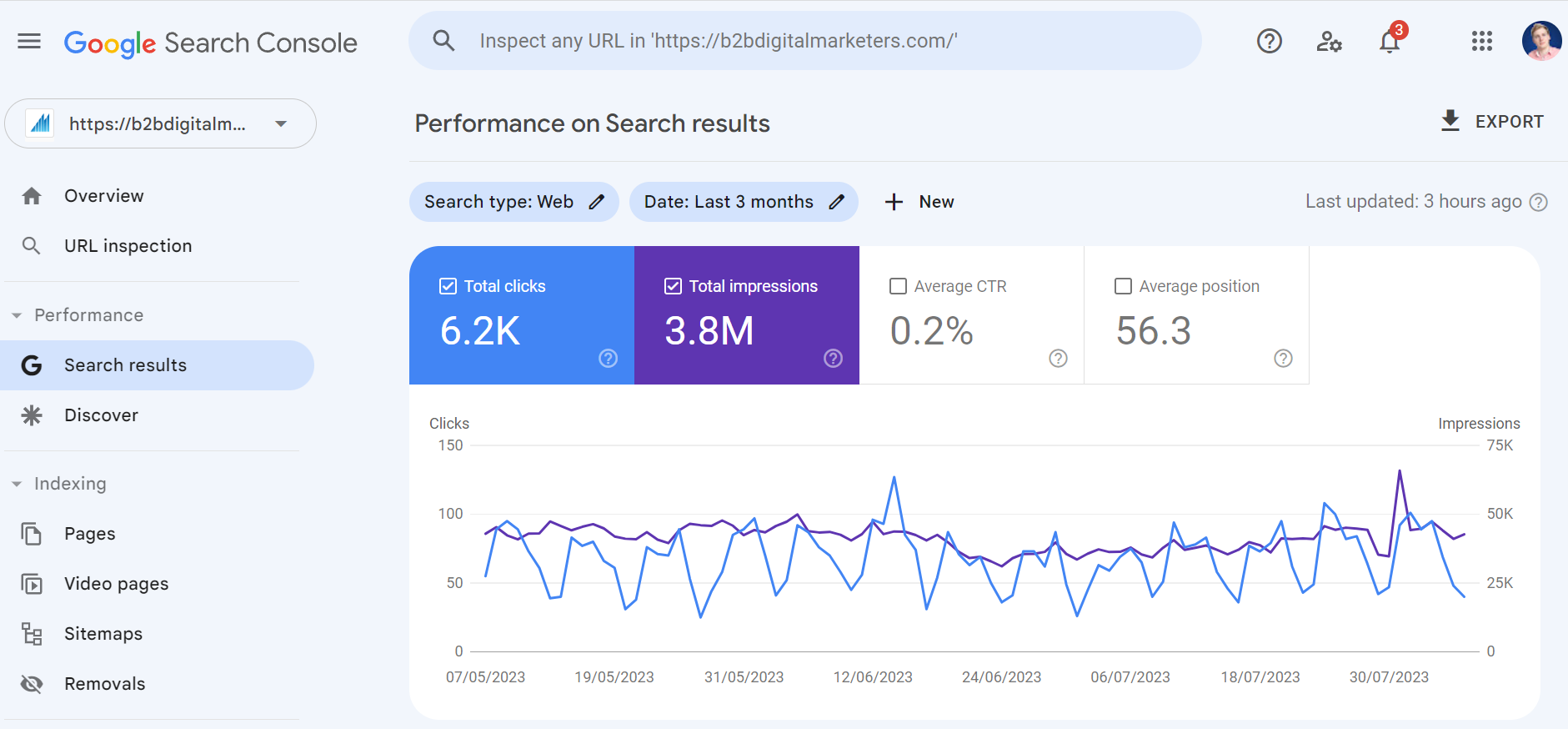
And when you click on “+New” and select “Query…”. You can write any keyword that you want to see and its metrics.
However, despite GSC providing the closest data to the true performance of your website, it has flaws as well:
- It’s time-consuming as well.
- It’s hard to track all important keywords at once.
- It cannot provide any notifications.
Third-Party SEO Tools
And the last way how you can track your keywords is by using third-party SEO tools for tracking keywords and even conducting deep keyword analysis.
SEO Tools such as SE Ranking makes tracking and analyzing your keywords so much easier by providing you with a summary of essential data such as distribution of top position, search visibility, average ranking, and much more.
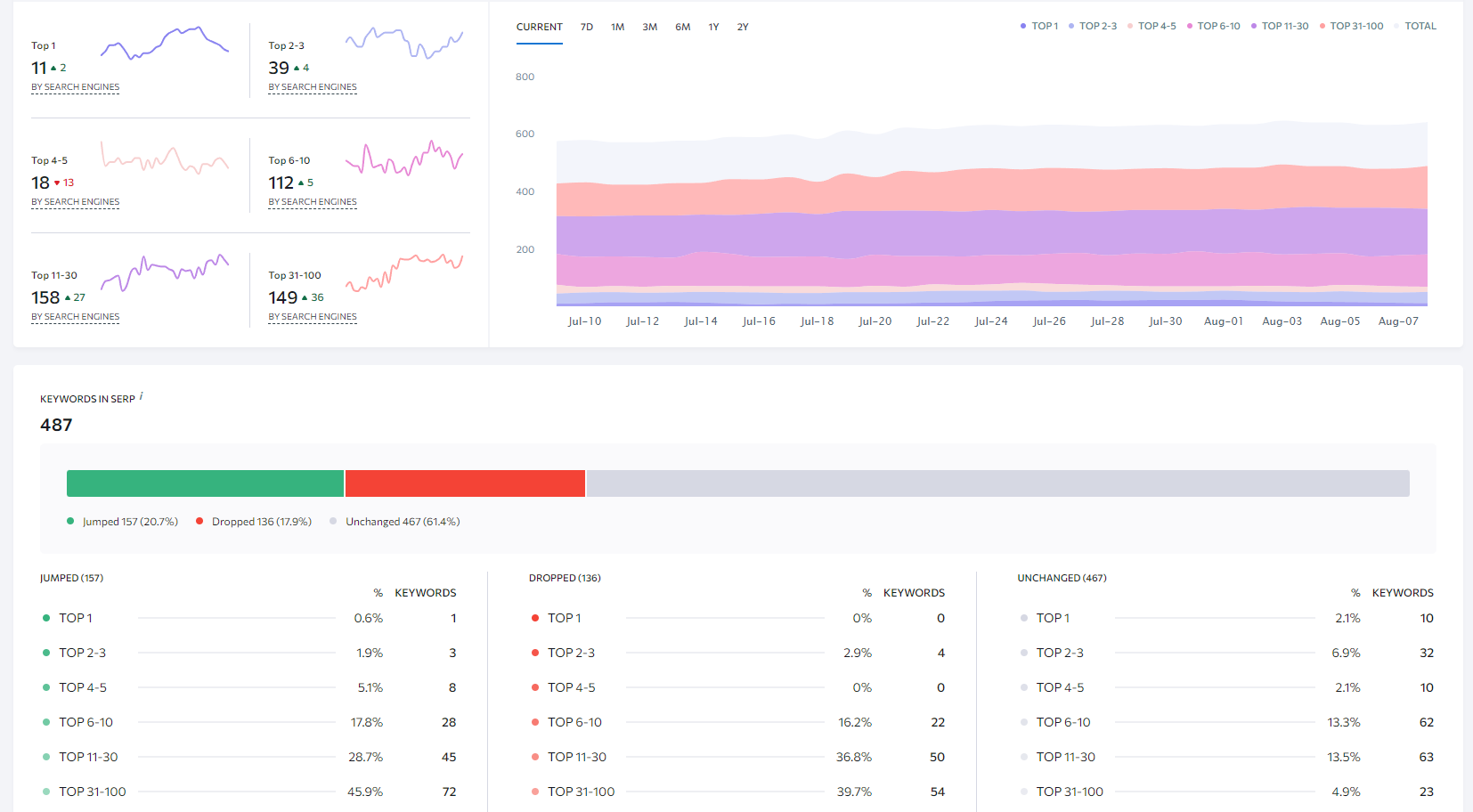
And then you can go into the detailed view and get all the important information on your keywords performance in select countries and search engines.
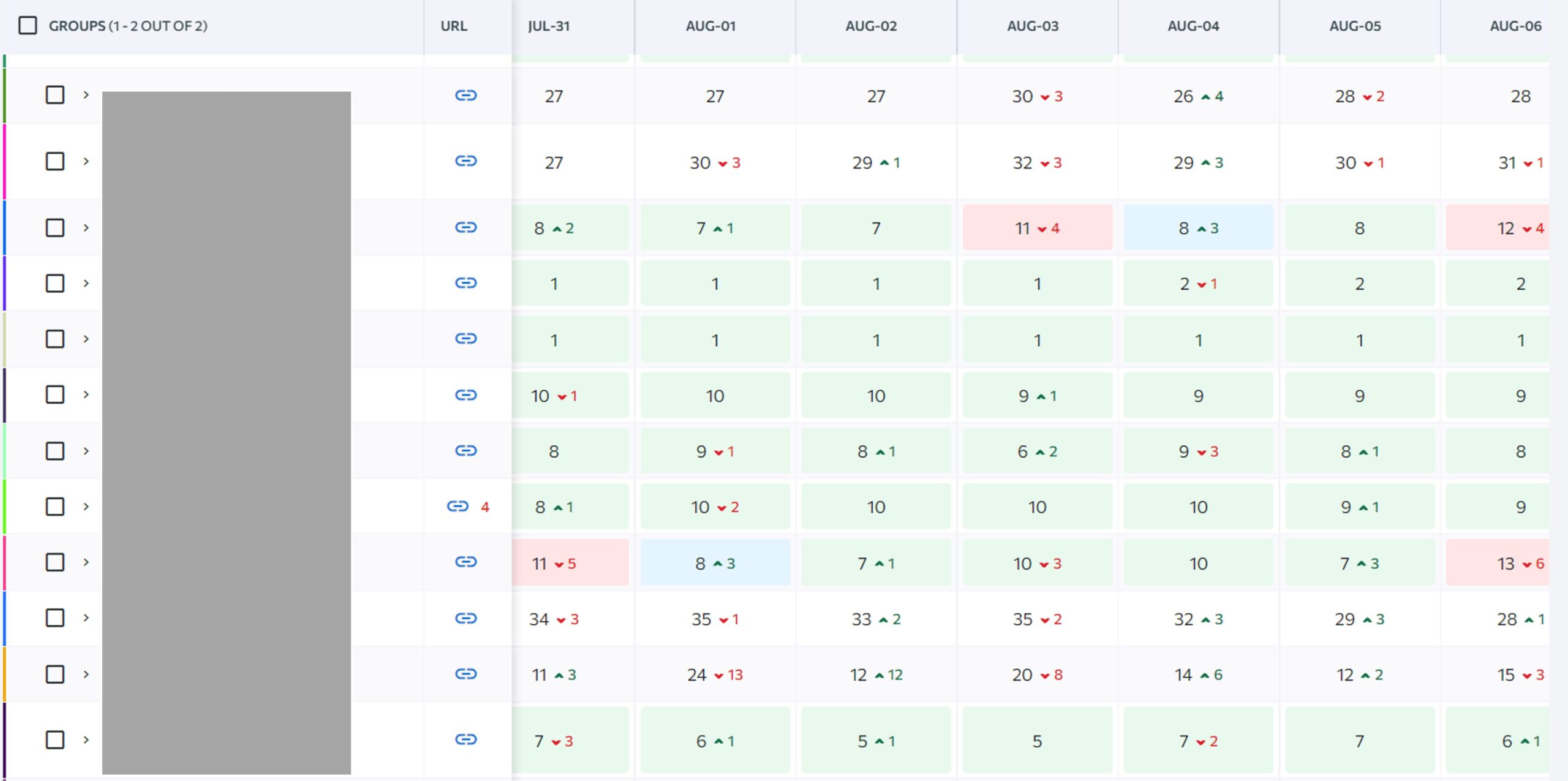
And of course, it gives so much more information.
With that being said, using SEO Tools such as SE Ranking is the best way to track keyword ranking and it takes only a few minutes to analyze everything you need to know.
Therefore, if you want to try it, you can use my link and get a 14-day free trial to test it out and if it’s working for you, then get it!
How to Analyze Keyword Ranking Data
Now, in SEO, tracking your keyword rankings is only half the battle. The real magic lies in understanding what those numbers mean and how they can shape your SEO strategy.
So, let me walk you through some important information when you start tracking your SEO keywords:
Duration to Rank
The first important information you need to know is the duration to rank for your keyword.
How long did it take for your keyword to appear in SERPs?
Usually, it should take up to 2 weeks for your page to start ranking for your target keyword.
However, ideally, you want to see your page start ranking within the first 7 days for the target keyword.
So, you want to compare the date when you publish the content to the day it started ranking.
If it’s below 14 days, then Google is crawling your website regularly and there is no issue.
However, if it’s more than 14 days, then this could be due to several things:
- The most common reason is because the keyword is too competitive.
- You have not implemented a proper internal linking strategy for your new content.
- Google does not crawl your website as often. This could be due to quality issues, and posting frequency, among other things.
SEO Tip: Every time you publish new content, you want to immediately submit the URL in Google Search Console and add the primary keyword in your keyword rank tracking tool so you can easily monitor this.
Evaluating the Initial Keyword Ranking Position
The next important information you want to track is the initial ranking position of your page for the ranking keyword.
Your goal is to target keywords that you can immediately rank in positions no higher than 20. Meaning the first ranking position of the page for the target keyword should be between positions 1-20.
In my example, you can see the first ranking position was 33. This means the keyword was too competitive for my website authority and next time I should choose less competitive keywords.

Assuming that my internal linking is properly optimized and my on-page SEO is as well.
It’s also important to check the web page ranking for the keyword.
Obviously, it should be the page you published and optimized for the target keyword.
If not, then your on-page SEO might be weak, you have cannibalization, or you’ve been ranking for the keyword with another page and you just need to add an internal link with exact keyword anchor text from that page to your newly optimized page.
To choose less competitive keywords I recommend you read Avalanche Strategy.
Keyword Ranking Performance Trend
And the last thing I want to point out when you’re analyzing your keyword ranking position is the trend of your keyword ranking performance.
Obviously, you want to see the keyword ranking be improving in the first few weeks.
Until it finds the right ranking position and from there you will know if you need more backlinks to further improve the ranking, improve on-page SEO, or do other things.
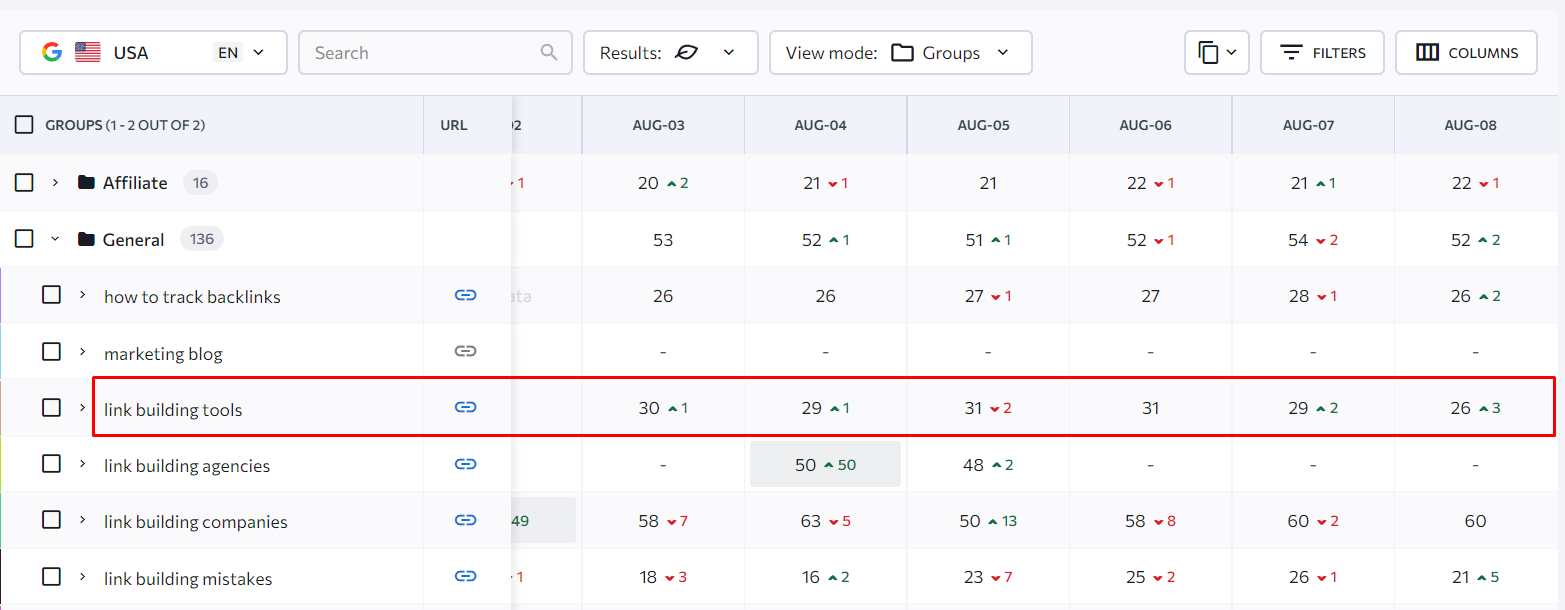
Of course, there are more things you might need to be tracking or analyzing, depending on what you need.
These are just initial data you should be tracking in the first two weeks of publishing new content on your website to evaluate your overall keyword and SEO strategy.
How to Improve Keywords Ranking
In case your keyword ranking is not optimal, let me tell you some of the SEO best practices to improve your keywords ranking:
Target Easier to Rank Keywords
One of the biggest mistakes you can make is to target those juicy, yet competitive keywords in your industry.
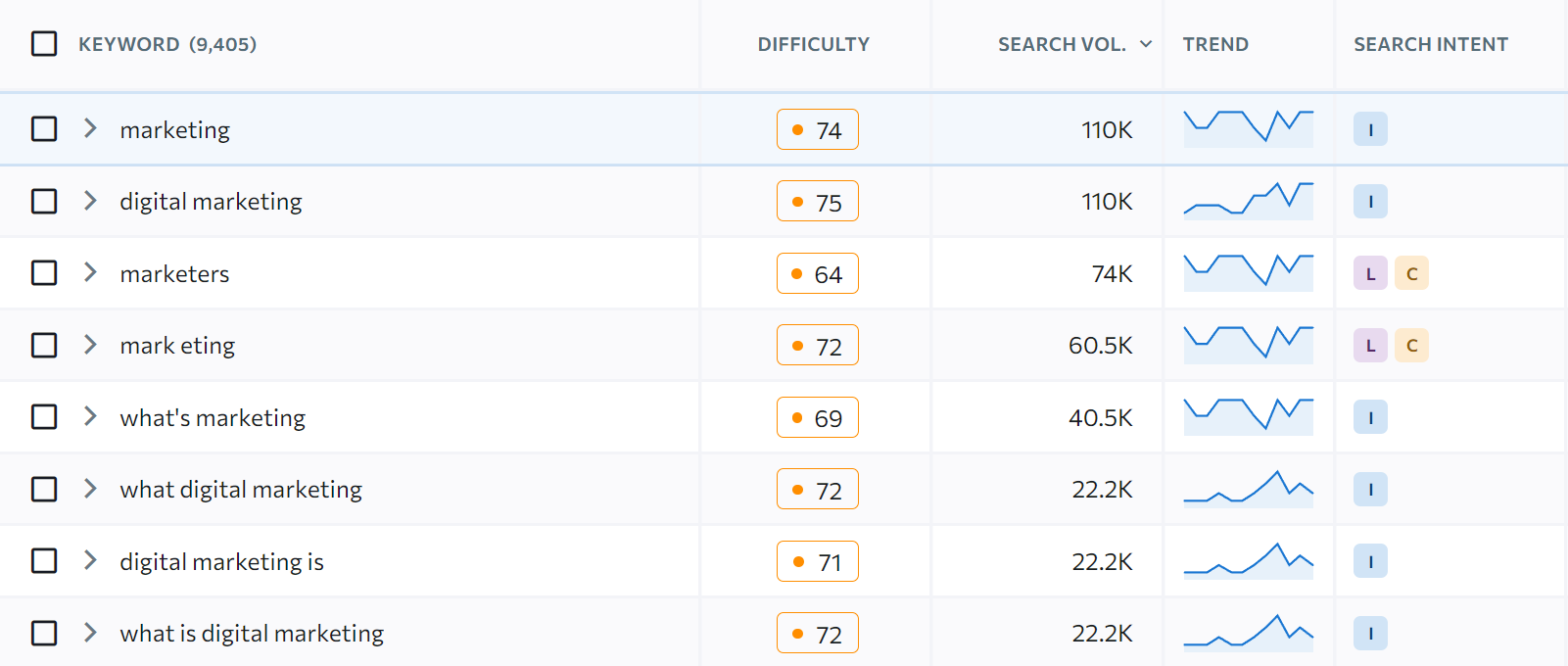
You know, those that are dominated by big websites.
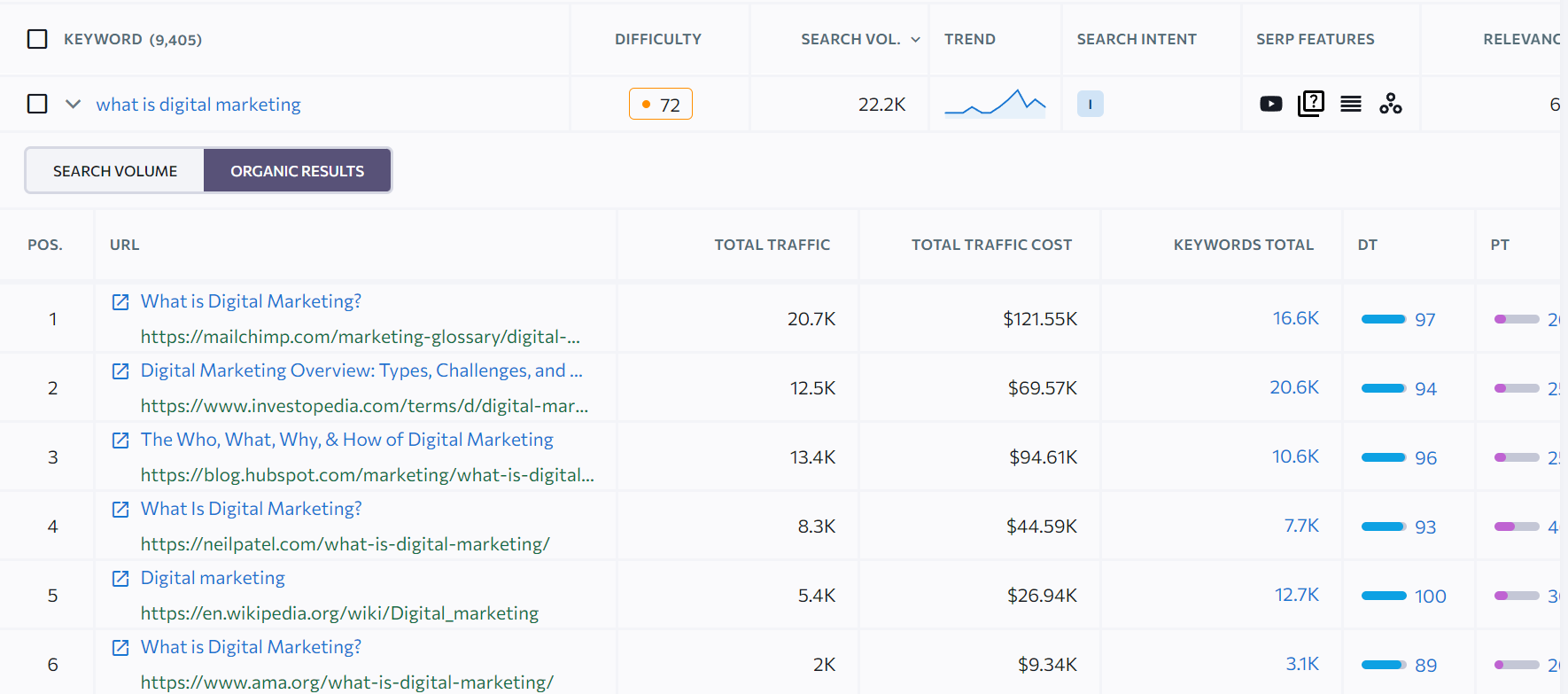
Instead, you want to target low-competitive keywords such as long-tail keywords.
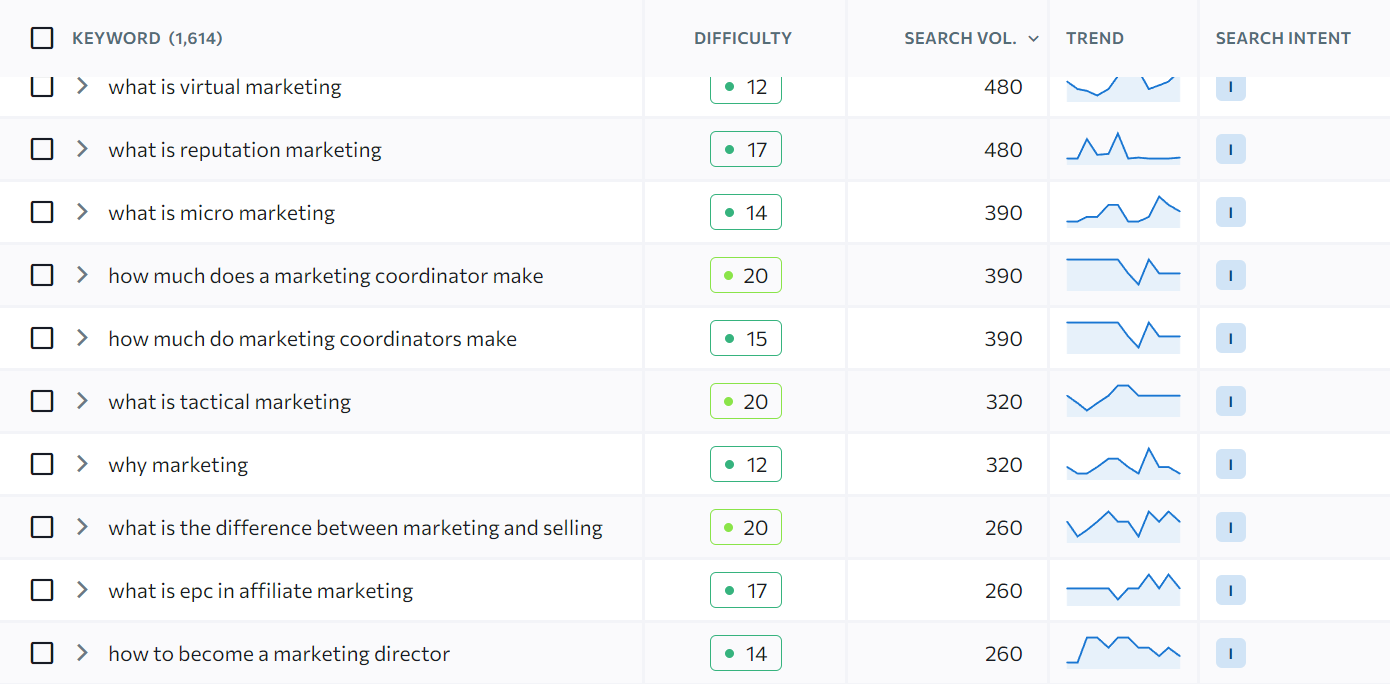
Yes, they’re not as attractive as those highly competitive keywords, but let’s be honest, you would never get any traffic from the very competitive keywords.
So, choose your battles wisely!
Improve Internal Linking
While much attention is given to acquiring external backlinks, the power of internal linking often remains underutilized.
Internal links are essential for your website to improve your indexing, ranking, and user experience, and boost page authority.
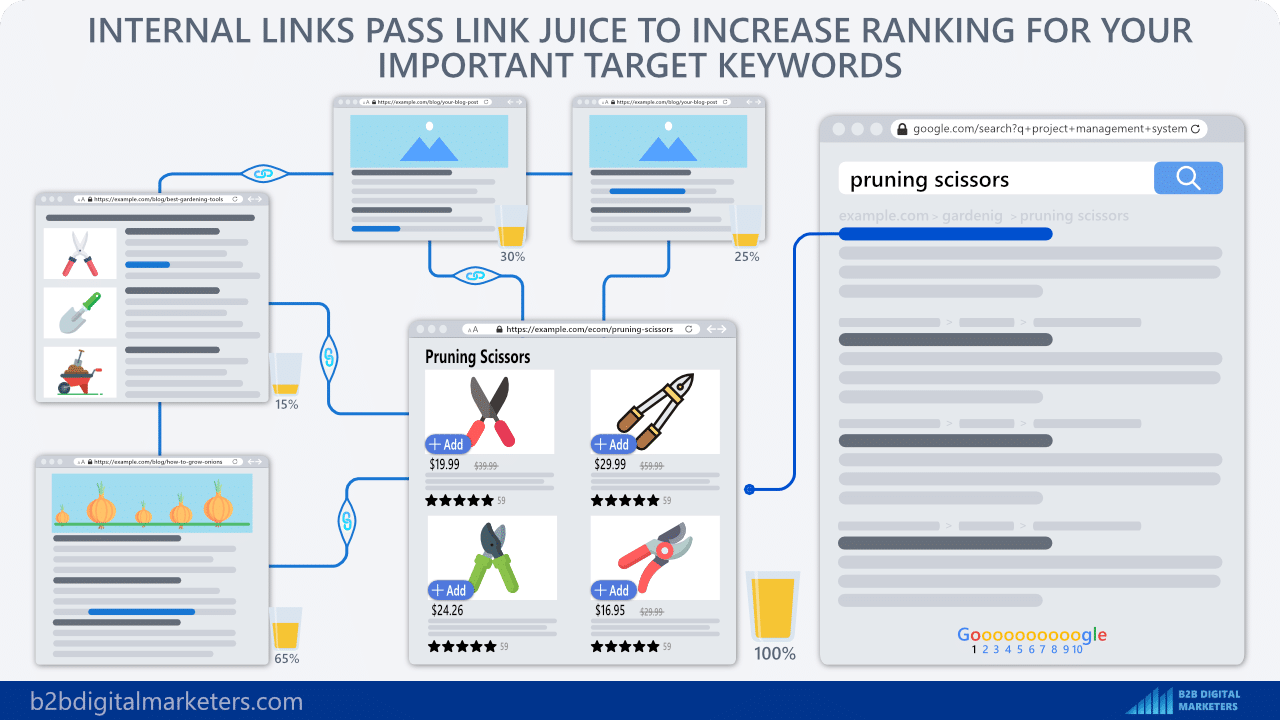
Just like with backlinks, internal links helps you to spread the link juice across your pages.
They also help you to improve your topical authority by connecting relevant topics with each other.
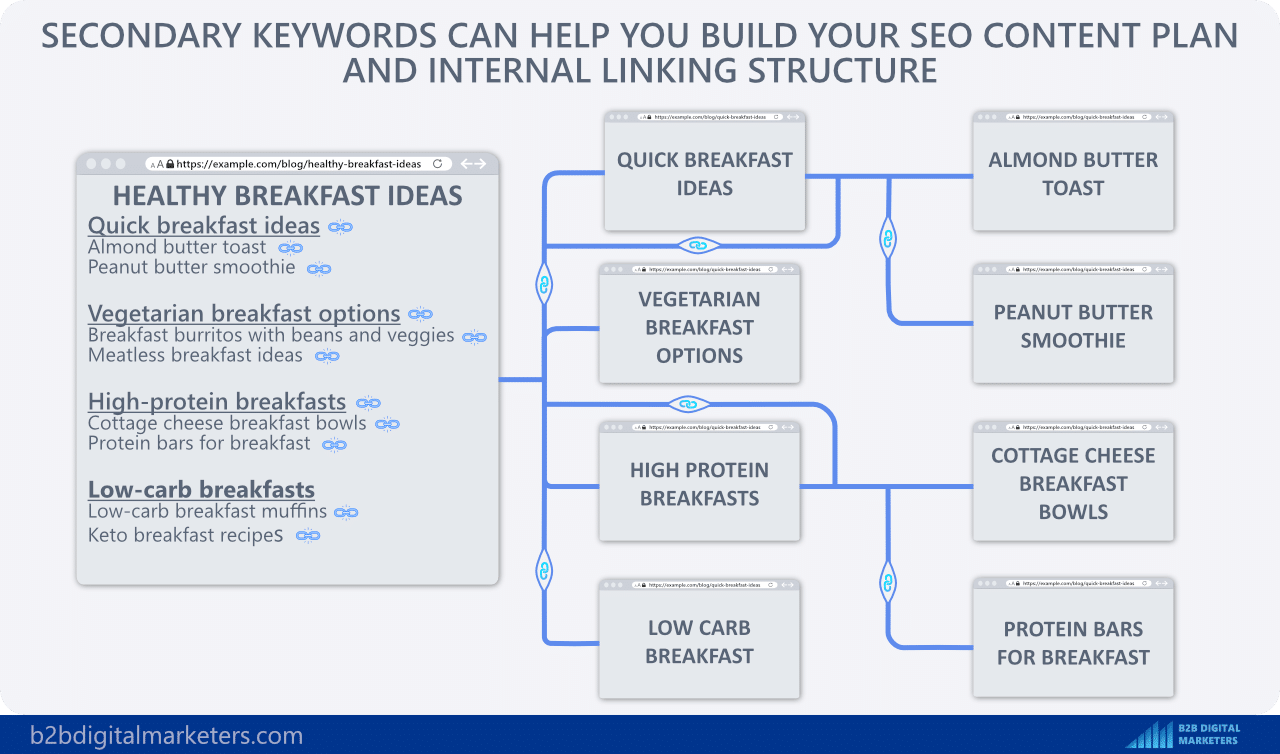
Therefore, it’s essential that you always create at least 10 internal links from your new web page to your old pages and 10 internal links to your new web page from your old web pages.
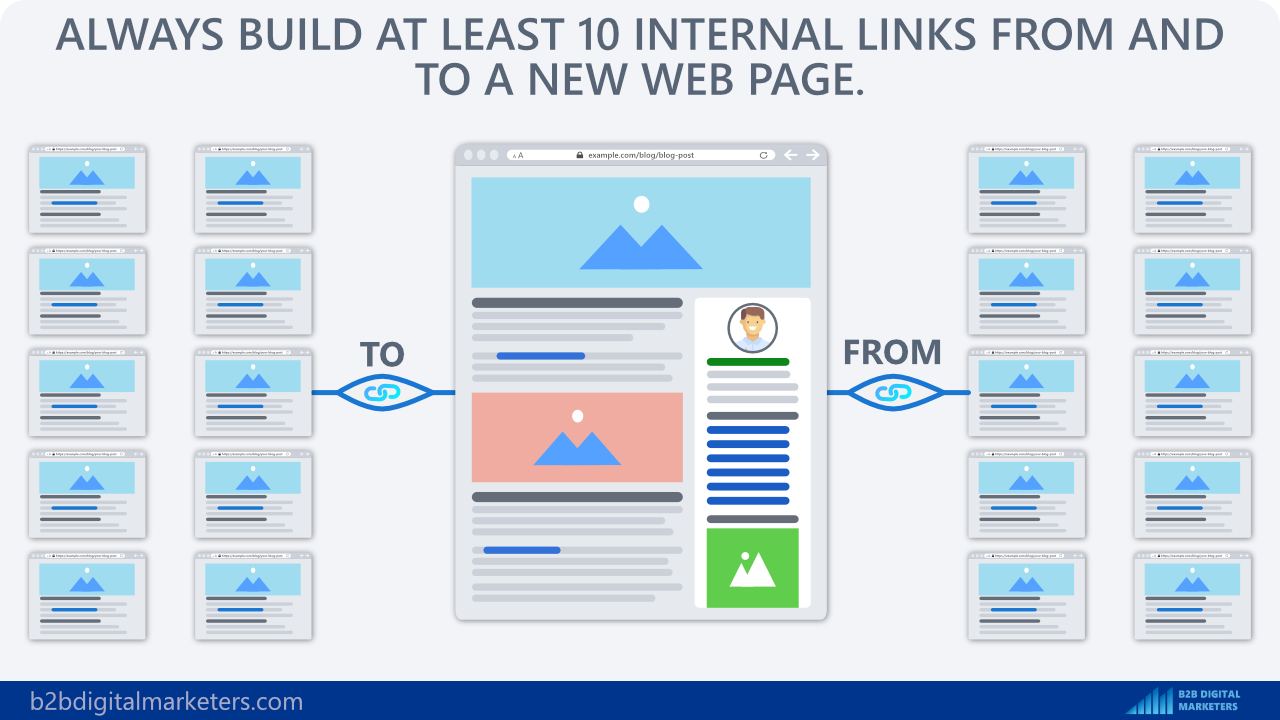
Get More High-Quality Backlinks
Backlinks are the cornerstone of high ranking now in almost any industry.
Therefore, you cannot simply rank for your profitable keywords/commercial keywords/transactional keywords/ or even informational keywords without actively getting new backlinks to your website.
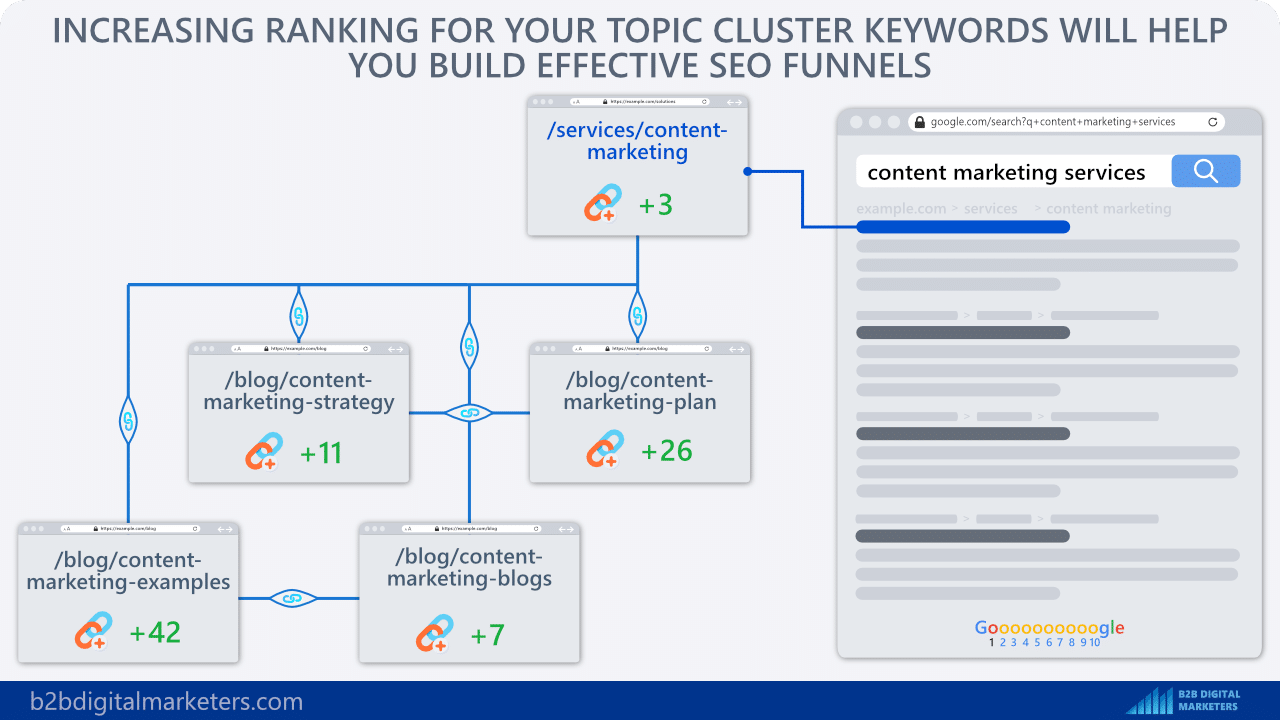
So, you must implement at least some of the link building strategies such as HARO, resource link building, guest posting, link exchange, or link insertion, so you can start improving your website ranking.
Additionally, if you can I recommend you hire a link building company to help you with that. To see which link building companies I am using, check out my article.
Some related articles I recommend you:
- SEO Lead generation
- How to Create SEO Funnel
- SaaS SEO Strategy Guide: A Step-by-Step Checklist with Best Practices
Grow Your Topical Authority
Another essential best practice I have for you to grow your ranking is by focusing on building topical authority.
If you want to succeed in your search market, you need to get the most important pages of yours in the top-ranking positions.
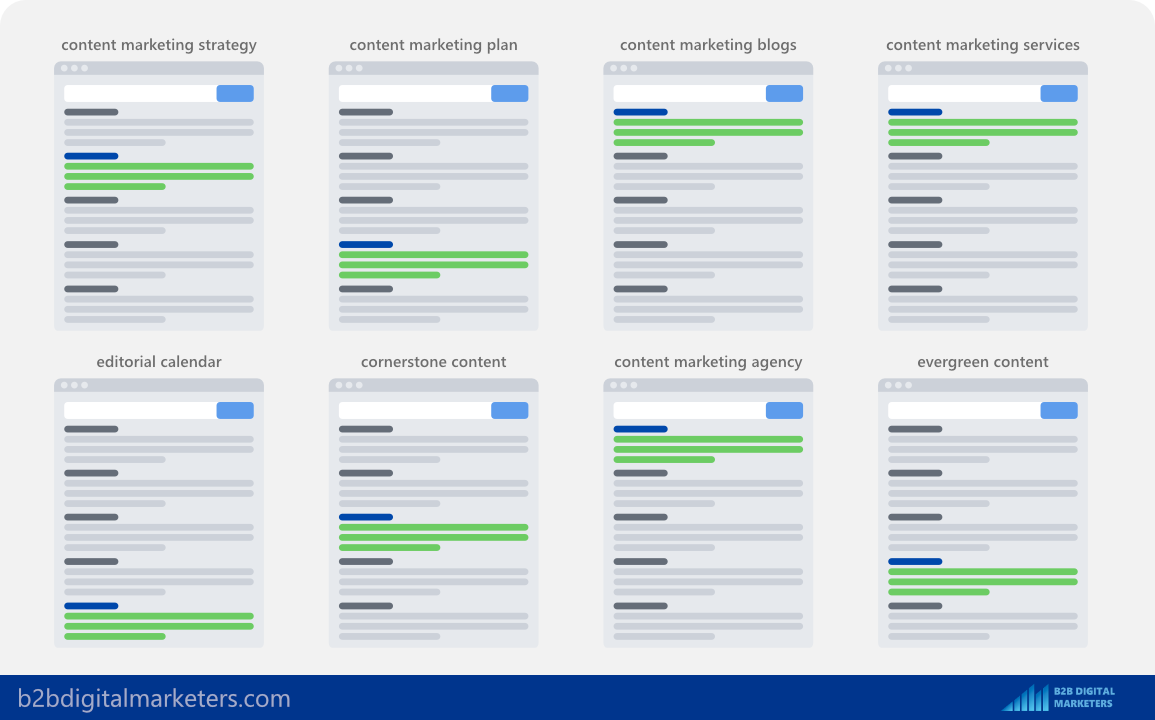
And to do that is by building topical authority.
Topical authority refers to a website’s expertise and credibility on a specific subject or topic. It’s about being recognized, both by search engines and users, as a go-to resource for a particular domain of knowledge.
And to achieve that, you need to laser-focus on certain topics of yours and create as much content around that topic.
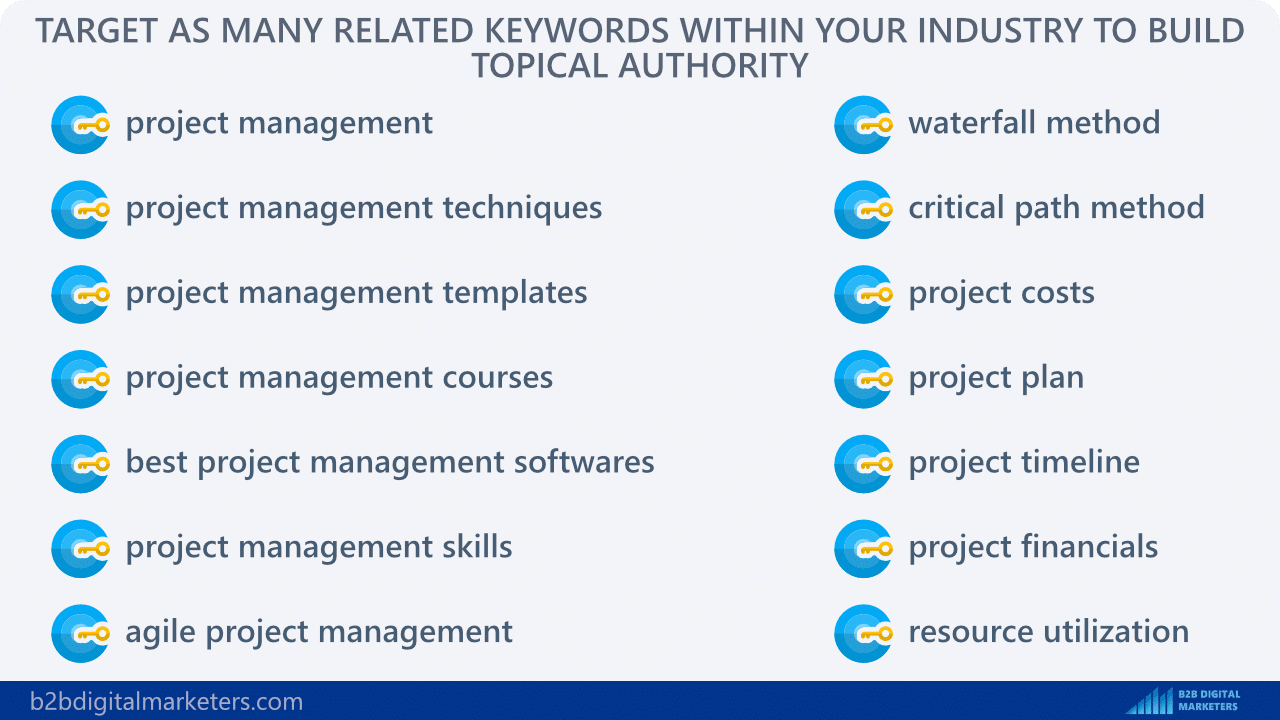
Additionally, you need to create highly valuable content by providing relevant data, and insights of industry experts, and boost your engagement.
And there is a lot more on this. So, if you really want to nerd out on this, then check out the Koray YouTube channel.
Improve Your E-E-A-T
The next thing you should improve in order to improve your keywords ranking is your E-E-A-T or Experience, Expertise, Authoritativeness, and Trustworthiness.
The thing is, creating content is becoming much easier with AI writing tools such as Jasper, Writersonic, or ChatGPT.
So search engines like Google are more focused on finding content from trusted sources.
And to become a trusted source you need to improve your E-E-A-T such as:
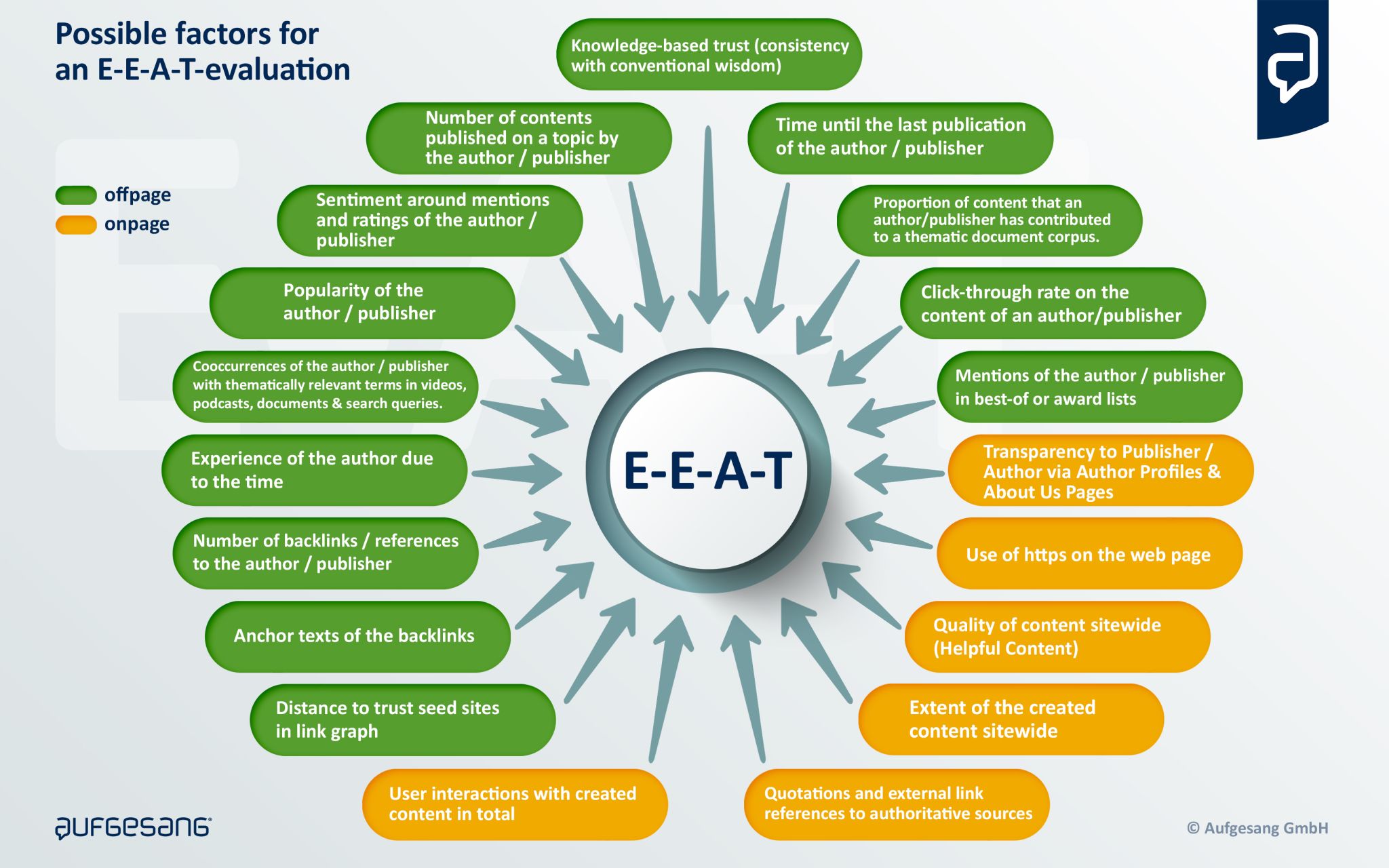
- Create an About Us Page to show that you’re a good source on a certain topic.
- Provide credentials and a history of your expertise.
- Focus on creating content around your expertise.
- Use sources, quotations, and references within your articles.
- Ensure your website is well protected.
- Get a lot of high-quality backlinks, brand mentions, and even author mentions.
As the internet is being over-saturated with bad quality content, building your E-E-A-T should be your top priority!
Implement SEO Best Practices
Lastly, always make sure that you implement SEO best practices and SEO techniques for your website.
I already told you a few, so here are a few more that I did not mention:
- Focus on Keyword Placement: It’s not just about having the right keywords but placing them strategically. Ensure they appear in your titles, headers, and throughout the content without overstuffing.
- Use Schema Markup: This microdata helps search engines better understand your content’s context. Implementing it can lead to richer search results and potentially higher click-through rates.
- Optimize for Core Web Vitals: Google’s Core Web Vitals is a set of metrics related to speed, responsiveness, and visual stability. Ensuring your site meets these standards can positively impact your rankings.
- Consistently Update Your Old Content: SEO isn’t a set-it-and-forget-it game. Regularly revisit and refresh your old content to keep it relevant and aligned with current search trends.
- Ensure Your Technical SEO is Sound: Beyond content, the technical aspects of your site, like XML sitemaps, structured data, and crawlability, play a pivotal role in how search engines perceive your site.
I promise you, if you implement all the SEO best practices and techniques I’ve mentioned here in this section, you will rank very well!
Best Keyword Tracking Tools
And here is a list of my favorite keyword tracking tools so you can choose the one that fits your needs, budget, and personal preferences:
- SE Ranking: Topping my list is SE Ranking. It’s not just a personal favorite but stands out as one of the most accurate keyword-tracking tools in the industry. Its precision and user-friendly interface make it a go-to for many professionals.
- SEMRush: A powerhouse in the SEO world, SEMRush is renowned for its comprehensive suite of features. Beyond its great keyword tracking capabilities, it offers a plethora of tools that cater to every SEO need, making it a holistic solution.
- Ahrefs: A popular choice among SEO enthusiasts, Ahrefs brings to the table some unique and advanced features. Its keyword tracking capabilities are top-notch, and it’s particularly known for its backlink analysis tools.
- Serpstat: is a versatile SEO platform that offers keyword tracking among its many features. Its database is expansive, and the tool provides valuable insights into your keyword performance, helping shape your strategy.
- Mangools: While it might not have the same name recognition as some of the others, Mangools is a formidable tool in its own right. It’s user-friendly, offers precise keyword tracking, and its suite includes tools like KWFinder and SERPChecker, making it a valuable asset for any SEO professional.
Final Advice
Knowing how to track your keywords is essential!
You cannot do well if you don’t know how your SEO strategy and keywords perform.
That’s why you need to track your keywords!
That’s why I have created this article, for you to know and get better at SEO!
So let me know what you think on my YouTube channel!
Support the B2BDigitalMarketers
Join My SEO Family! ❤️
Hi there, every word I write is fueled by a deep passion for SEO and a desire to help others like you. But I need your support to keep this dream alive.
By supporting me on Patreon, you’re not just funding content; you’re nurturing a community, fostering education, and becoming a cherished part of my journey.
Let’s make the digital world more accessible, together. Every contribution means the world to me. 🌍💫
FAQs about How to Track Keyword Ranking
In this section, I am going to answer the following questions about how to track keyword ranking:
To manually check keyword ranking:
- Open an incognito/private browsing window to avoid personalized results.
- Go to your preferred search engine, like Google.
- Use SE Ranking Location Changer.
- Enter the keyword you want to check.
- Scroll through the results to find your website’s position.
- Note the position and page number for tracking. You can install SEOQuake to count the ranking position.
To track SEO keywords:
- Use Google Search Console to monitor keyword performance on Google.
- Implement third-party SEO tools like SE Ranking or SEMRush for comprehensive tracking.
- Set up keyword rank tracking to monitor specific target keywords.
- Analyze keyword data regularly to identify trends and performance.
- Adjust your SEO strategy based on insights from the tracked data.
Consistent monitoring ensures you stay updated with keyword performance and can make timely optimizations.
SEO rank tracking is the process of monitoring a website’s position in search engine results pages (SERPs) for specific keywords. It helps in understanding the effectiveness of SEO strategies, identifying opportunities for improvement, and gauging the site’s visibility against competitors. Regular rank tracking provides insights into search engine algorithm changes, keyword performance, and the impact of SEO efforts on search rankings.
The fastest way to rank a keyword is by targeting long-tail, low-competition keywords, ensuring high-quality, relevant content, optimizing on-page SEO elements, securing quality backlinks, and promoting the content on social media and other platforms. Regularly updating content and ensuring a mobile-friendly, fast-loading site also boosts rankings. Monitoring and adjusting strategies based on performance analytics can expedite results.
To find your keyword ranking on Google, enter your target keyword into Google’s search bar and manually scroll through the results. Alternatively, use SEO tools like SE Ranking to check website position in Google to get precise rankings without manually searching through pages. Always ensure you’re using an incognito or private browsing mode to avoid personalized results.
Related Articles:
- How to Generate Sales Leads Without Cold Calling? (10 Effective Strategies)
- SaaS Lead Generation for B2B & B2C: 14 Proven Strategies, Tips & Best Practices from My Clients!
- Best 11 Top AI Writing Tools for Content and SEO Writing (Free & Paid)
- How to Add Keywords in WordPress? [Guide for Beginners]
Also, check out our SEO hub page to find all our SEO Resources.
Disclaimer
This article was created by Eduard Dziak and may contain affiliate links. The following were used to optimize the article for the best user and search engine experience include:
- SE Ranking for keyword research and on-page SEO optimization
- Surfer SEO for SEO-friendly content creation for users and search engines.
- Jasper AI for grammar correction and information enhancement.
The article is based on the author’s own experience and knowledge, drawn from both their own work and that of their clients, to provide the latest, proven methods.








